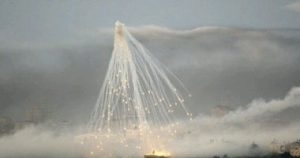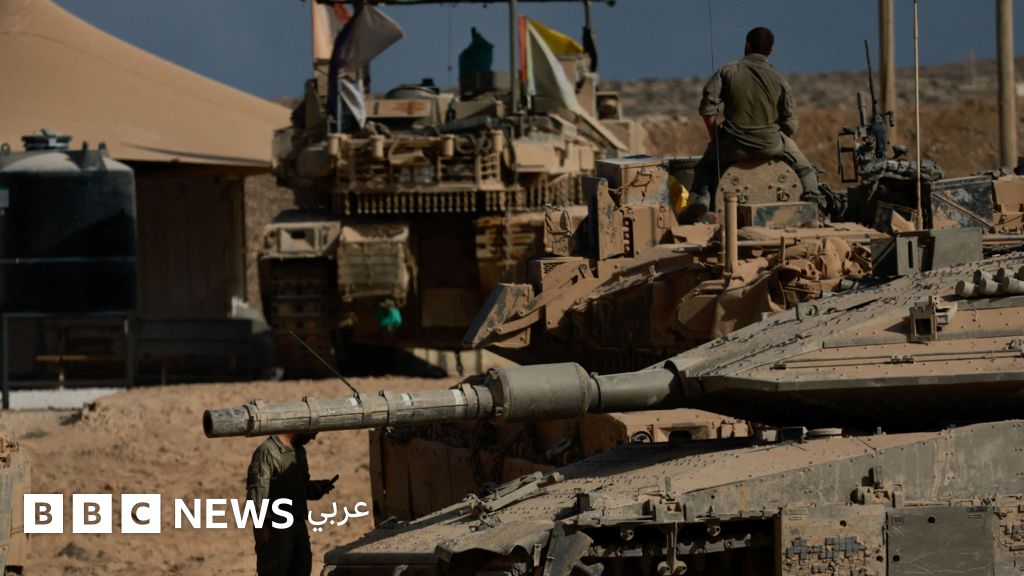On Thursday, the Israeli army announced it controls 40 percent of Gaza City, the largest city in the besieged and devastated Palestinian Gaza Strip, and is preparing to take full control in a new offensive.
Israeli army spokesperson Ivri Dvirin said in a press conference: “We continue to destroy Hamas’ infrastructure. Today, we control 40 percent of Gaza City,” referring to the Al-Zeitoun and Sheikh Radwan neighborhoods.
He added, “We will continue to expand and intensify the operation in the coming days,” noting that the mission will only end with the return of the remaining Israeli captives and the end of Hamas rule.
Israel has intensified its strikes around Gaza City in recent days.
Dvirin confirmed that Chief of Staff Eyal Zamir informed government ministers that without a post-war plan, military rule will have to be imposed in the Gaza Strip.
Members of the far-right in Prime Minister Benjamin Netanyahu’s government are pushing for military rule in Gaza and the establishment of residential complexes there, a move Netanyahu has so far rejected.
Israeli sources said Netanyahu will conduct a “situation assessment” in the West Bank on Sunday evening during a meeting with ministers and senior aides to discuss the possibility of applying Israeli sovereignty over parts of the West Bank.
An Israeli official denied that the meeting was dedicated to annexation, stating that the issue is not on the official agenda.
In the same context, sources told the Jerusalem Post that Netanyahu decided to exclude the issue of imposing “sovereignty” over the West Bank from the Thursday meeting agenda after the UAE considered this step a “red line.”
The meeting will focus on the security situation in the West Bank ahead of the United Nations General Assembly, where several countries are preparing to recognize the Palestinian state.
The UAE stated in a press release obtained by AFP that “annexation of lands in the West Bank constitutes a red line for the UAE,” calling for a halt to annexation plans in the occupied West Bank and warning that it would seriously undermine the normalization agreements established in 2020 between the two countries.
UAE Assistant Minister of Foreign Affairs for Political Affairs Lana Nusseibeh said the agreements were intended to support the Palestinian people and their legitimate aspiration to establish an independent state. She added that the annexation proposals, reportedly under discussion within the Israeli government, aim to “bury the idea of the Palestinian state,” according to one Israeli minister’s words.
Earlier, Britain and France were among 21 countries that signed a joint statement condemning Israel’s approval of the annexation plan as “unacceptable and a violation of international law.”
The Israeli security establishment warned that “the situation in the West Bank could explode at any moment,” citing the severe economic crisis and political uncertainty in the region.
Israeli Finance Minister Bezalel Smotrich, who will attend the meeting, revealed a proposal to annex 82 percent of the West Bank.
Earlier this year, the Knesset approved a non-binding proposal to annex the West Bank by a majority of 71 votes to 13.
In another development, Israeli Defense Minister Yisrael Katz threatened war in the West Bank, saying: “If the Palestinian Authority’s security forces turn against the Israeli army, the latter will wage a decisive war, and Israel will not allow a new intifada.”
Channel 14 reported that Katz instructed the Israeli army in a closed meeting with military leaders on Wednesday to prepare a decisive plan in the West Bank in case of an extreme scenario.
Katz said during the meeting, “The government’s goal is to maintain stability, but if the Palestinian security forces turn their weapons against us, we will wage a war that ends decisively, and we will not allow a new uprising.”
About 500,000 Israelis live in settlements in the West Bank among three million Palestinians.
The United Nations regularly condemns Israeli settlement activity as illegal under international law and one of the main obstacles, along with ongoing violence, to achieving a lasting peaceful solution through the establishment of a Palestinian state controlling the West Bank and Gaza Strip.













Recommended for you
Exhibition City Completes About 80% of Preparations for the Damascus International Fair Launch
Talib Al-Rifai Chronicles Kuwaiti Art Heritage in "Doukhi.. Tasaseem Al-Saba"
Unified Admission Applications Start Tuesday with 640 Students to be Accepted in Medicine
Egypt Post: We Have Over 10 Million Customers in Savings Accounts and Offer Daily, Monthly, and Annual Returns
His Highness Sheikh Isa bin Salman bin Hamad Al Khalifa Receives the United States Ambassador to the Kingdom of Bahrain
Al-Jaghbeer: The Industrial Sector Leads Economic Growth